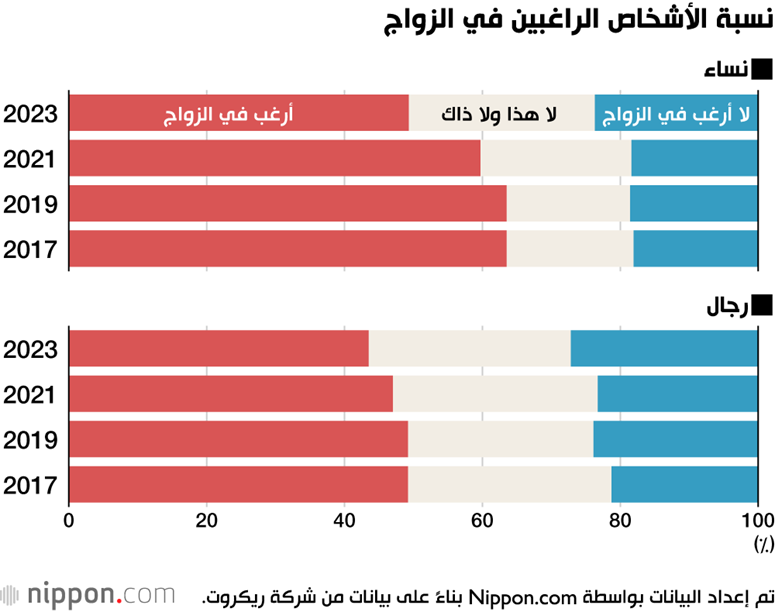?Japan's future is in danger... Why are the Japanese reluctant to marry and have children

A survey of single Japanese people aged 20 to 49 found that 34.1% of them had never dated anyone.
Recruit's survey on the reality of relationships and marriage in Japan shows interesting data about the state of relationships in the country. According to the results, the proportion of single Japanese people between the ages of 20 and 49 who are currently in a relationship is 29.7%. This shows a dramatic decline in the proportion of individuals living in relationships.
On the other hand, the percentage of participants who had never been in a relationship increased to 34.1%. This is the highest percentage since the beginning of this survey, which indicates an increase in the number of individuals who are not involved in romantic relationships or marriage.
When looking at people in their 20s who indicated they had “never been in a relationship,” the percentage of men rose by 11.8 points to 46.0%, while the percentage of women rose by 5.5 points to 29.8%. This shows a rise in non-romantic involvement for both genders, a trend that appears to be continuing.

Data shows that the percentage of those who want to get married (at some point) is 49.3% for women and 43.5% for men. Although the percentage of desire to marry was higher among women, it still remained much lower compared to the previous survey.
These data indicate a change in marriage prospects among young people in Japan, where there appears to be a lack of overall desire to marry. These shifts can be related to economic, social, or cultural factors that influence young people's preferences regarding relationships and marriage commitments.
It is important to track these trends and understand the factors that influence young people's thinking about marriage in Japan, as these trends can play a role in shaping society and guiding social policies and programs.

The data shows that the most common reason given by 40.5% of women for not wanting to get married is that it “puts an end to my activities and lifestyle.” On the other hand, the main reason cited by 42.5% of men was “loss of financial freedom.”
These reasons show changes in young Japanese people's preferences toward marriage, as women seem to consider that marriage may lead to restrictions on their personal lives and activities, while men cite financial pressures as a major factor influencing their decisions about marriage.
Understanding these dynamics can help develop social and economic policies that promote the stability of marital relationships and provide support for young people in achieving their personal and economic aspirations.

It shows that the national survey, conducted in early September 2023, targeted single people aged between 20 and 49, and valid responses were received from 1,200 people. Providing this broad range of participants helps in getting a comprehensive view of their opinions and preferences regarding relationships and marriage in Japan.
Source: websites

